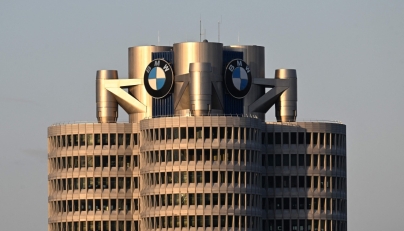Health
Dutch Consumer Groups Sue BMW Over Alleged Diesel Emissions Fraud

The Dutch Consumer Association has initiated a class-action lawsuit against BMW, alleging that the automaker falsified emissions data for approximately 100,000 vehicles sold in the Netherlands. The lawsuit, announced on Monday, claims that BMW installed software designed to reduce nitrogen emissions during testing, while actual emissions during typical driving conditions were significantly higher.
The Consumentenbond has cited studies indicating that this software manipulation misled both regulatory bodies and consumers. “It’s shameless how BMW misled both the inspection bodies and consumers,” stated Consumentenbond head Sandra Molenaar. She emphasized that the company must take responsibility and compensate those affected by their actions.
The lawsuit targets all BMW and MINI diesel cars sold in the Dutch market between January 1, 2009, and September 1, 2019. In response to the lawsuit, a spokesperson for BMW, Andrew Mason, expressed that the company had learned of the legal action through media reports and stated that “no such claim has yet been served.” He indicated that BMW is not aware of the specific allegations being made by Car Claim, the group collaborating with Consumentenbond on this legal action.
The Car Claim group has urged BMW to recall the affected vehicles and implement necessary modifications. They are also calling for compensation for both current and former drivers. Guido van Woerkom, chairman of Car Claim, remarked that despite the initiation of legal proceedings, they remain open to discussions with BMW in hopes of reaching an equitable resolution.
This lawsuit forms part of a broader emissions scandal known as “dieselgate,” which has implicated several prominent automotive manufacturers worldwide. The scandal initially erupted in September 2015, when Volkswagen admitted to equipping millions of cars with software that manipulated emissions readings during regulatory testing, thereby obscuring the true environmental impact of their vehicles.
The fallout from dieselgate has led to significant legal actions across multiple countries, including France, South Korea, and the United States. In February 2019, German prosecutors imposed a fine of €8.5 million (approximately $9.8 million) on BMW for exceeding permissible emissions levels in their diesel vehicles. Prosecutors clarified that the violations were due to error rather than intentional deceit.
As the case unfolds, it highlights ongoing concerns regarding automotive emissions practices and the accountability of manufacturers in ensuring compliance with environmental standards. The outcome of this lawsuit could have far-reaching implications for BMW and its reputation in the global market.
-

 Sports2 months ago
Sports2 months agoNetball New Zealand Stands Down Dame Noeline Taurua for Series
-

 Entertainment2 months ago
Entertainment2 months agoTributes Pour In for Lachlan Rofe, Reality Star, Dead at 47
-

 Entertainment1 month ago
Entertainment1 month agoNew ‘Maverick’ Chaser Joins Beat the Chasers Season Finale
-

 Sports2 weeks ago
Sports2 weeks agoEli Katoa Rushed to Hospital After Sideline Incident During Match
-

 Sports2 months ago
Sports2 months agoSilver Ferns Legend Laura Langman Criticizes Team’s Attitude
-

 Politics1 month ago
Politics1 month agoNetball NZ Calls for Respect Amid Dame Taurua’s Standoff
-

 Sports1 week ago
Sports1 week agoJamie Melham Triumphs Over Husband Ben in Melbourne Cup Victory
-

 Entertainment3 months ago
Entertainment3 months agoKhloe Kardashian Embraces Innovative Stem Cell Therapy in Mexico
-

 World3 months ago
World3 months agoPolice Arrest Multiple Individuals During Funeral for Zain Taikato-Fox
-

 Sports3 months ago
Sports3 months agoGaël Monfils Set to Defend ASB Classic Title in January 2026
-

 Entertainment2 months ago
Entertainment2 months agoTyson Fury’s Daughter Venezuela Gets Engaged at Birthday Bash
-

 Sports2 months ago
Sports2 months agoHeather McMahan Steps Down as Ryder Cup Host After Controversy





















